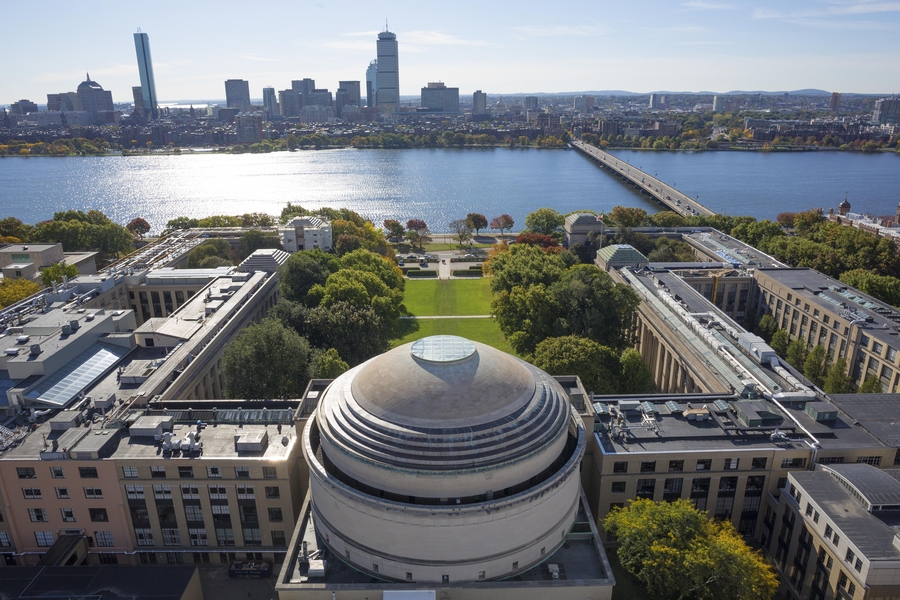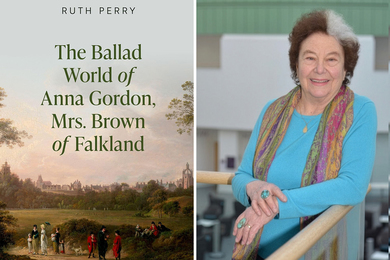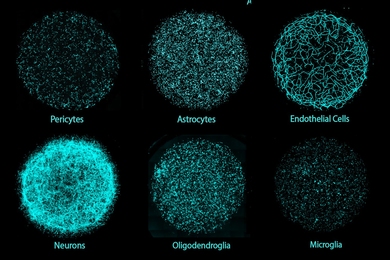Thanks to the efforts of Cara Manning PhD ’16, the MIT Libraries, and many others across the Institute, MIT is launching a new way for authors of scholarly articles to legally hold onto rights to reuse and post their articles, and for others to more easily build on that work. As of this month, all MIT authors, including students, postdocs, and staff, can opt in to an open access license.
In the summer of 2015, Manning was an MIT-Woods Hole Oceanographic Institution (WHOI) graduate student submitting her first journal article to publishers. Her research funder expected her to make the details of the technology she developed freely available. Manning expected this, too. She had long shared her work: At the end of a summer of undergraduate research at Woods Hole, she sent all of her WHOI colleagues the code she’d devised for calibrating mass spectrometer data. “I’d run into people at conferences who’d look at my name tag and recognize me and say they’re using my code,” she says.
“There are things that go into science that are potentially useful,” says Manning. “My philosophy is to share.”
It is also the philosophy of the MIT faculty, who in 2009 adopted a policy giving MIT nonexclusive permission to disseminate their journal articles for open access through DSpace@MIT. It was one of the first and most far-reaching initiatives of its kind in the United States, and MIT remains a leader in open access, with 44 percent of faculty journal articles published since the adoption of the policy freely available to the world.
“MIT has a long and proud history of making our research and teaching available to a broad, global community of potential learners and scholars," says Chris Bourg, director of the MIT Libraries. “We’re committed to open access because global access to knowledge is good for science, it is good for the advancement of knowledge and our understanding of the world, and it will accelerate our collective ability to solve the world’s grand challenges."
Publishing rights are something scholarly researchers cannot take for granted. The high-profile chemistry journal that Manning and her coauthors chose to publish their article, for example, was typical of academic journals in that it required they sign over their copyright. In doing so, the authors lost rights to use their work, except in ways prescribed by the publisher. The MIT Faculty Open Access Policy would have neatly accommodated this problem, but it applies only to MIT faculty or their coauthors. Manning was neither.
Frustrated, she approached the MIT Libraries, which implements the faculty open access policy, and asked: How can we make an open access policy that applies to students? The answer was far from simple.
“We’d long heard from MIT authors who were not faculty that they’d like a policy so they would be more assured of their rights to share their work. But there was no clear path to extend the policy to those authors,” says Ellen Finnie, head of scholarly communications and collections strategy at the MIT Libraries. “The faculty adopted the policy in 2009 as a faculty policy, and they were not positioned to create a blanket policy for other groups at MIT. There were governance questions about who could create a policy that would apply by default for graduate students.”
After Manning and Finnie met in 2015, Finnie and attorney Jay Wilcoxson from the Office of General Counsel came up with the idea for an opt-in license — a voluntary agreement that an individual MIT author can sign and that applies to scholarly articles written while at MIT. “We thought that an optional license would offer the power of an open access policy for authors not covered by the faculty policy. It’s exciting to see the license now available to all MIT authors,” says Finnie.
The opt-in language mirrors that of the faculty policy and was vetted across campus by groups including the Office of General Counsel, Faculty Policy Committee, Committee on Intellectual Property, and Graduate Student Council, which has long supported making student work more accessible to the public. The license can be used by authors who are employed by, have an academic instructional staff or academic research staff (e.g., postdoc) appointment from, or are registered as a student at MIT, and applies to articles written while at the Institute.
While she was pushing for open access at MIT, Manning, who graduated in October, was also working with librarians at Woods Hole on an open access policy for WHOI researchers that was announced last month.






